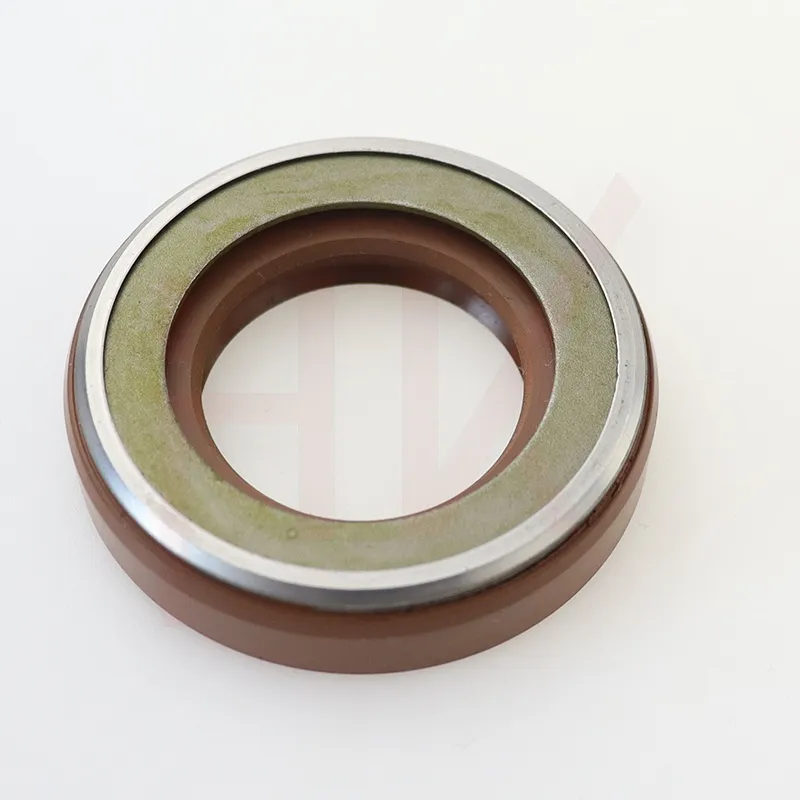Set . 23, 2024 23:30 Back to list
Enhanced Rubber Seal for Improved Hub Performance and Durability
Hub Rubber Seal An Essential Component for Optimal Performance
In today's fast-paced industrial environment, ensuring reliability and efficiency in machinery is paramount. One crucial component that plays a significant role in achieving this goal is the hub rubber seal. Often overlooked, the hub rubber seal is integral to various applications across automotive, marine, and aerospace industries due to its ability to prevent leaks, reduce friction, and enhance performance.
The fundamental purpose of a hub rubber seal is to create a tight barrier that prevents the ingress of contaminants such as dirt, dust, water, and other harmful substances. Typically located in rotating equipment—such as wheel hubs in vehicles or in machinery involving moving parts—these seals protect the internal components by keeping external elements at bay. This is vital since the presence of dirt or moisture can lead to premature wear and tear, increasing maintenance costs and compromising safety.
In addition to protection, hub rubber seals play a significant role in retaining lubricants within the assembly. Lubrication is critical for minimizing friction between moving parts, thereby improving the operational efficiency of equipment. A well-functioning hub rubber seal ensures that the lubricant remains in place, facilitating a smooth operation and extending the lifespan of the machinery.
hub rubber seal

The design of hub rubber seals can vary based on their application and the specific requirements of the machinery involved. Materials used in their manufacture typically include elastomers, which are chosen for their flexibility, durability, and resistance to environmental factors such as heat, chemicals, and ozone. These materials are engineered to withstand significant wear and tear, which is essential for maintaining performance in demanding conditions.
Moreover, the installation and maintenance of hub rubber seals are critical to their functionality. Proper installation techniques can significantly extend the life of the seal and improve the overall efficiency of the machinery. Regular inspections and replacements of seals are advisable to prevent leaks and to maintain optimal performance. Neglecting seal maintenance can lead to costly downtime and repairs, which underscores the importance of this seemingly minor component.
As industries continue to evolve with advancements in technology, the role of hub rubber seals becomes even more vital. With the trend towards hybrid and electric vehicles, for instance, seals must adapt to new requirements, including compatibility with different types of lubricants and the ability to function effectively under varying temperatures and pressures.
In conclusion, hub rubber seals may be small in size, but they are large in impact. Their ability to seal, protect, and retain lubricants makes them indispensable in numerous applications. As businesses seek to enhance productivity and efficiency, paying attention to the quality and maintenance of hub rubber seals will undoubtedly yield significant benefits. Thus, investing in high-quality seals is not merely a choice, but a necessity for achieving operational excellence.
-
TCN Oil Seal Metal Ring Reinforcement for Heavy Machinery
NewsJul.25,2025
-
Rotary Lip Seal Spring-Loaded Design for High-Speed Applications
NewsJul.25,2025
-
Hydraulic Cylinder Seals Polyurethane Material for High-Impact Jobs
NewsJul.25,2025
-
High Pressure Oil Seal Polyurethane Coating Wear Resistance
NewsJul.25,2025
-
Dust Proof Seal Double Lip Design for Construction Equipment
NewsJul.25,2025
-
Hub Seal Polyurethane Wear Resistance in Agricultural Vehicles
NewsJul.25,2025
-
The Trans-formative Journey of Wheel Hub Oil Seals
NewsJun.06,2025
Products categories
















